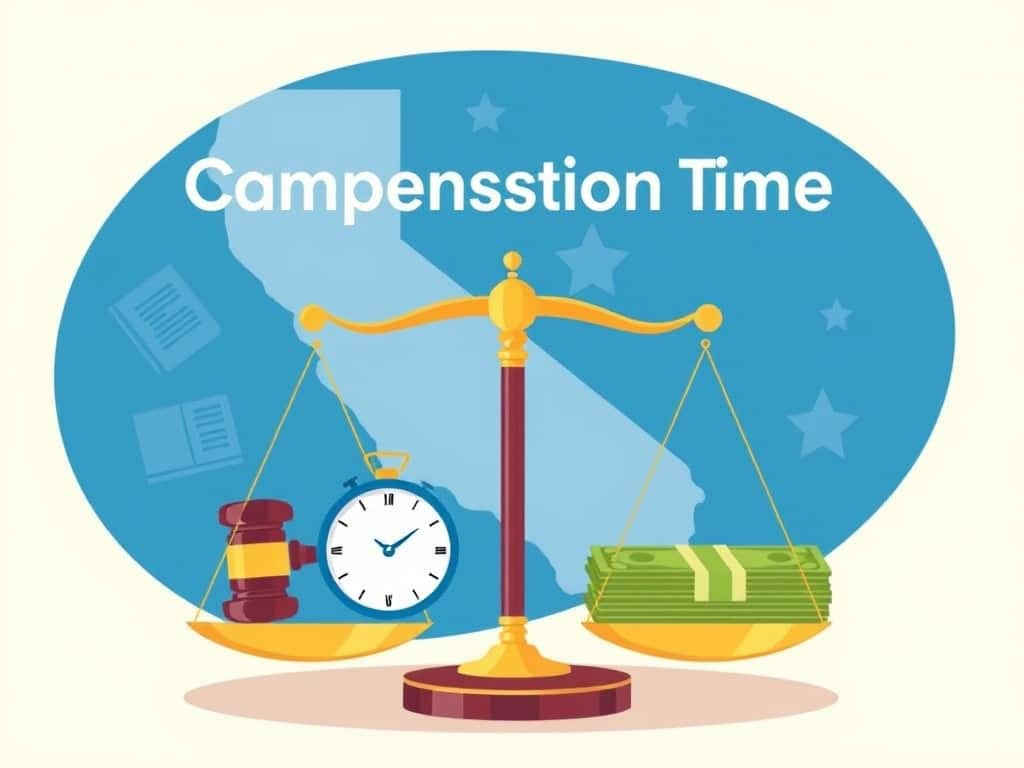You’ve probably heard someone say, “We’ll just give you comp time.” On paper, that sounds simple—work extra now, take time off later. In practice, California treats compensation time differently than many folks expect, and that gap can trip up both workers and managers. Nakase Law Firm Inc. provides legal guidance on matters involving compensation time to ensure businesses and workers remain compliant with California’s labor standards. Here’s the thing: once you look at how the state calculates overtime, the idea of swapping hours for hours starts to wobble.
California is known for strong wage protections, and that shows up fast with comp time. Private workplaces usually must pay overtime in cash, not bank hours for later. People still ask the same thing every week because schedules vary and job demands shift. California Business Lawyer & Corporate Lawyer Inc. often fields the question, how many hours is a 9-5, from employees trying to map schedules to overtime rules.
What people mean by comp time
Let’s ground this with a small story. Say Mia, a dental assistant in Anaheim, stays two extra hours on Tuesday to help a nervous patient. Her supervisor says, “Take Thursday morning off—call it even.” That trade—extra hours now, time off later—is what most folks call comp time. Sounds fair enough, and yes, in a busy office it can feel like the kindest option. Then payday lands, and Mia notices her check is light. That’s where the state’s rules step in, because California looks at the hours worked and asks, “Were any of those overtime?”
Why California treats comp time differently
Federal rules let public agencies (think schools, public safety, city departments) offer comp time in certain situations. California follows that for public workers, yet draws a firm line for private employers. To keep it simple: public agencies sometimes can; private employers almost never can. The idea is to prevent unpaid or delayed overtime from becoming a habit that chips away at paychecks.
How overtime works here
California’s system focuses on both daily and weekly totals. Go past 8 hours in a day? That can trigger overtime. Push beyond 40 in a week? More overtime. Hit 12 hours in a day? That’s double time. Picture Jordan, a warehouse lead, who puts in 9 hours Monday and Tuesday, then regular 8s through Friday. By the end of the week, he’s over 40. A future afternoon off doesn’t make the extra pay vanish. The time off might be nice, sure, but the pay is still owed.
When comp time actually fits
There is a lane for comp time in California, and it’s mostly for public employees—often through union contracts or written agreements. Think of it like a carefully marked parking spot: you can use it, but only if the signs say so and you follow every posted rule. Even then, agencies cap how many hours someone can save and set guardrails for when those hours can be used.
Upsides and downsides, in plain terms
Some workers love the idea of a future long weekend with their kids. Public budgets can breathe easier when hours shift instead of money moving. That said, problems pop up fast if the saved time can’t be used when life actually allows. Maybe you’ve banked hours for a cousin’s wedding, and then your team hits a crunch week. Or you switch jobs and worry about those hours ending up in limbo. California’s approach tries to avoid that kind of squeeze on pay and schedules.
What employers need to keep in mind
For public employers who are allowed to use comp time, the basics matter every single day:
- Put the option in writing—handbook, policy, or union agreement.
- Make sure employees agree to it without pressure.
- Track accruals like a hawk: earned, used, and remaining.
- Pay out any unused comp time if the person leaves.
Private employers should steer away from comp time as a pay substitute. The “you can take next Friday off” offer feels friendly in the moment, yet it can bring a wage claim later—and that’s a headache nobody wants.
What workers should watch for
If you’re in the private sector, overtime is generally money, not a promise of hours later. If you’re in the public sector and comp time is on the table, it should be set out clearly before the overtime happens. A small, practical habit pays off here: keep your own notes on start times, end times, and breaks. If something doesn’t match the stub, your notes help you speak up with confidence.
Common stories and the myths behind them
You might hear, “Everybody offers comp time.” Not in California’s private workplaces. Or, “Comp time wipes out overtime pay.” It doesn’t. Or, “Unused comp hours just disappear.” If you’re owed hours that translate to pay and you leave, that should be settled. These myths spread because jobs in other states sometimes do it differently, and folks bring that assumption west.
Real-world risk for employers
Here’s a quick composite example based on situations attorneys see often. A small café group rotates staff through busy weekends, telling them to bank hours for slow weekdays. Two baristas move on, compare notes, and file claims for unpaid overtime. Soon, the company is handling back wages and penalties. The goal was to make scheduling easier; the result was a problem with real cost.
A smoother path for businesses
There are legal scheduling models that help without stepping into comp time trouble. Some teams run four 10-hour days by agreement, which can help cover longer service windows without pushing into daily overtime. Others set clearer cutoff points so supervisors don’t ask people to “just finish one more thing.” Plus, a simple weekly audit—one manager glancing at the hour totals before the week ends—can keep surprises off the payroll.
Practical pointers for workers
Start by asking a calm, direct question: “If I work past 8 hours today, is that overtime pay?” If you hear “We’ll bank it,” ask for the written policy. If you’re public sector and it exists, fine—check the caps and how to use it. If you’re private sector, ask how the overtime will show up on your check. And if answers feel fuzzy, talk with a labor attorney or reach out to the state’s enforcement office. A short conversation now can save weeks of stress later.
Short checklist for both sides
- Know the daily 8-hour trigger and the weekly 40-hour trigger.
- Set expectations before extra hours start.
- Document everything—policies for employers, personal logs for employees.
- Resolve questions quickly so trust doesn’t erode.
Wrapping it up
Compensation time, as a concept, sounds friendly: help today, rest tomorrow. In California, the money piece comes first for most private jobs, and that’s by design. Public roles may use comp time with tight rules. Either way, a little clarity at the start—what counts as overtime, what gets paid, and what’s simply not an option—keeps both paychecks and calendars on track. If you’re stuck, ask early. The right answer today beats a pay dispute next month.







